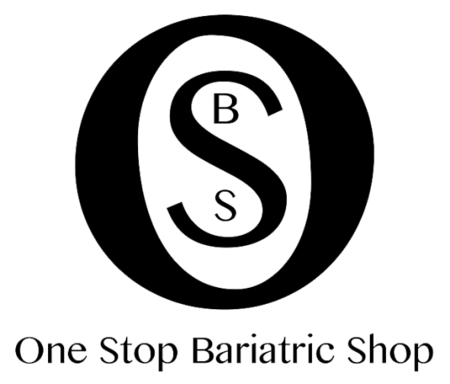Having bariatric weight loss surgery is not an easy choice as often thought by onlookers. Rather post surgery, it's more essential than ever to make changes to your eating habits and exercise habits if you want to lose the weight, keep healthy and keep the weight off long term.
Those who have had surgery know that if changes to eating habits are not made, not only could weight loss or long term weight maintenance by affected but also health. For example if you reduced your portion size of unhealthy foods and tolerate them then you can still cheat the system by eating all the wrong things in smaller portions. And while initially weight loss will happen to some extend, long-term you'll hit a plateau, the weight may creep back on but the worse thing of all you could become deficient in all sorts of nutrients including protein, vitamins and minerals which will eventually impact your health. There is no point being a skinny unwell person.
So it's crucial to get into good eating habits after surgery. Look at it as being given a chance to start over and be the healthiest you've ever been. Granted, there will be times when you have the wrong thing, but don't beat yourself up about it, just get back on track the next meal.
While there are many eating habit changes to work on, here are 5 that you can check and make sure you are doing. If you need some help making dietary changes, speak to a bariatric dietitian or contact ours here: Bariatric Dietitian or email: gloria@nutritionsavvy.com.au.
- Eat a balanced diet including all the food groups but especially focus on getting protein, calcium, vegetables and high fibre foods in. Remember you are only eating small portions so it's not as easy as before to get all the vitamins and minerals you need each day. So it's essential to get good nutritional intake after surgery and make the most nutritious food choices. When choosing what you will eat, think 'will this food provide protein, fibre, vitamins and minerals or just empty kilojoules / calories'?
- Get sufficient protein and calcium each day. One of the nutrients that you will hear about most from your bariatric surgeon or dietitian and on almost every bariatric Facebook blog is protein, protein, protein... This is because protein is essential to help fill you up and preserve your muscle mass while you lose weight. This doesn't mean you neglect all other food groups in an attempt to get protein in but it means that you need to ensure you are including protein in most of your main meals and even at some snacks. If you struggle getting protein in, you could try having a protein supplement, here are some on our website: Protein supplements. Other food groups are important to so you don't want to neglect these as they will provide different nutrients your body needs, one of which is foods high in calcium. Calcium is essential to maintain healthy bones and is another nutrient you need to get from your diet. While dairy foods are the easiest way to get calcium, there are non-dairy foods that are high in calcium including tofu, chia seeds, tinned salmon with bones, spinach etc. If you are struggling to get calcium in, then it may be worth considering a calcium supplement. Note: when getting blood tests done always get vitamin D tested (would recommend the PTH test also) also as vitamin D is essential to absorb the calcium and if it's low then you'll need to get it up for proper absorption.
- Work on getting sufficient fluids in each day especially water for most of your fluid needs (can flavour water with slices of lemon/lime/orange, diet cordial or Cyborg Ultra Leaan protein). While the commonly quoted fluid needs is 2L per day, this actually varies from person to person but aiming for 2L per day is a good start. Set small goals to reach this quantity.
- Take a good quality bariatric multivitamin or a high dose multivitamin daily to help ensure you meet vitamin and minerals requirements. After surgery, the amount of food that you can consume is much smaller so it is hard to meet vitamin and mineral requirements. Long-term deficiencies can affect not only weight loss but health also so it's important to take a multivitamin daily. Not all multivitamins are the same so get a good quality one with high dose of vitamins and minerals. Some good bariatric ones are listed here: Bariatric multivitamins.
- Chew food well and eat slowly. This is often a hard one but it's important. It probably seems crazy to chew all food to a liquid paste before swallowing and make your tiny portion of food take 20-30 minutes to eat but this is an essential habit to work on and try and maintain. Chewing food to a liquid before swallowing not only helps slow your eating down but also helps you get the most nutrition from the food you eat and makes a small amount of food last a bit longer (only problem is it getting cold - better for Summer meals).
